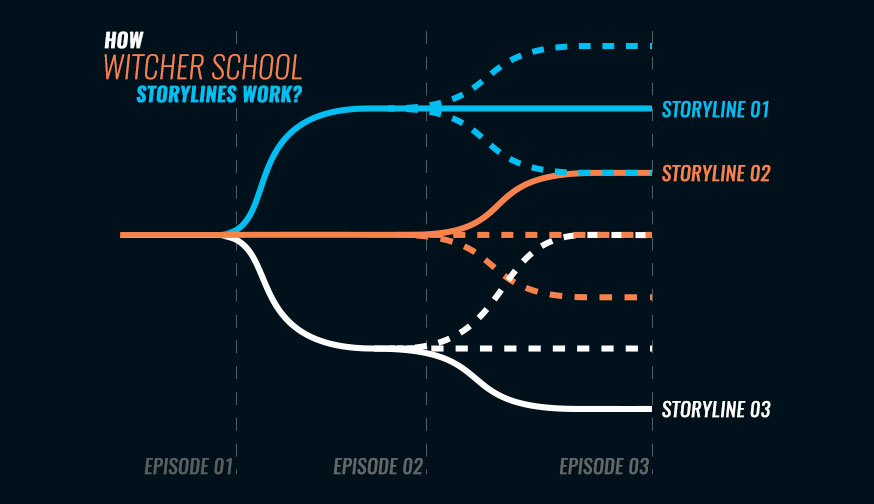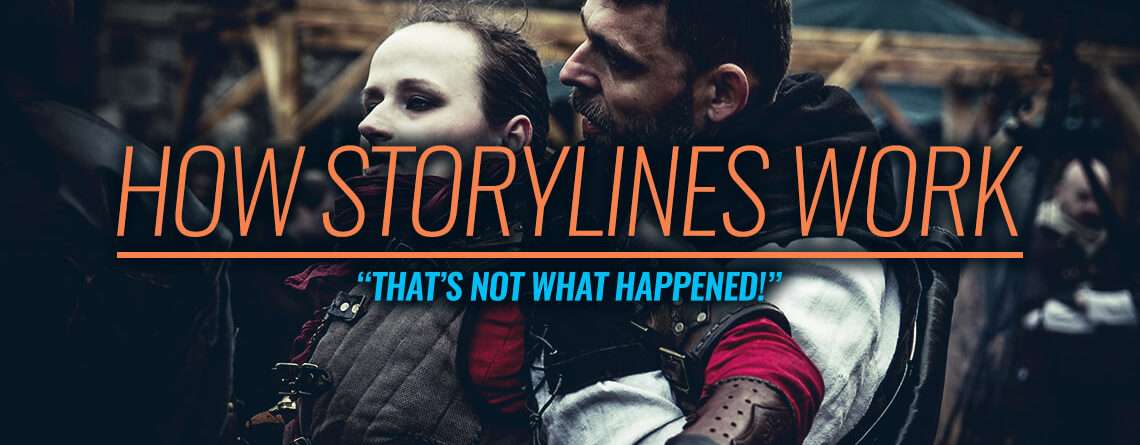“That’s not what happened!” – a word on how storylines work
You’ve probably wondered what’s the deal with all these episodes and the weird numbers – read on and have the conundrum solved.
Imagine you want to join your friends who have been visiting the Witcher School for a while now. You go to the website and see the event dates and names, complete with some random numbers. S03E04 probably reminds you of the way tv series are marked. But in tv series each subsequent season is the continuation of the previous one – at Witcher School, it’s a bit different, and each “season” is a separate story. To avoid confusion and make navigating the events a bit easier, we decided to rename the “season” to a more fitting “storyline” – so S03E04 is “the fourth episode of the third storyline”.
Each storyline tells the history of the fall of the witcher schools in six episodes and ends with an epilogue. Even though the episodes are chapters to the story, each of them can be viewed as a separate entity. They’re designed to have a clear-cut beginning and end, which means you can join the event whenever you want – and either end your character’s story after one episode or continue into the next one. A big upside of joining later into the story is discovering all the secrets and events that took place before.
You can consider the storylines to be alternative histories, starting at the same point in time and with the same events. Later, depending on the actions of the participants the story will evolve to reflect their choices. This means that the first episode in all storylines is always very similar, but the subsequent ones can differ significantly. For example – if on the first episode the players decide to save a wrongdoer they have encountered, he might appear in the next episode, bringing crucial information… Otherwise, his gang might come to get revenge, changing the power balance and story altogether.

In different storylines different people can play the same NPC roles, each giving them a distinct, unique character. If we also factor in that the way they interact with players is different, it might happen that due to the choices which have been made, in one storyline the particular NPC will be alive and well while in another one they will be tragically departed.
It happens that players jump on in different storylines and have the best of fun spotting all the details that make them different. However, you need to keep in mind that in this case, the plot twists might not be as surprising – after all, some elements of the story remain unchanged.
Aside from the 6 active storylines – 3 polish and 3 international ones – there’s a new international storyline launching in October. It will feature Castle Moszna as Kaer Tiele, the Wolf School – if you’re curious about the details, follow our blog. A post dedicated to Kaer Tiele and its secrets is on its way!
Danai Chondrokouki



Comment (1)
[…] best to choose an International run, where the lingua franca is English. You can learn more about Witcher School storylines on our […]